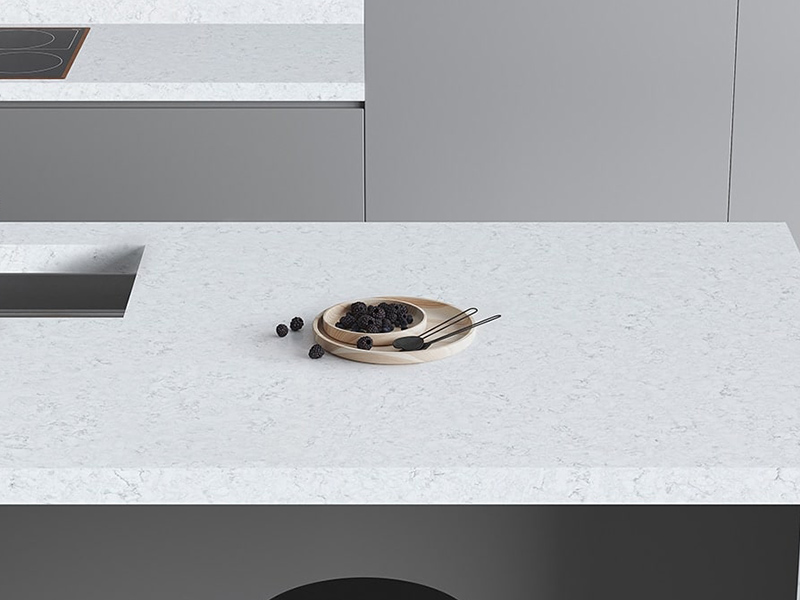
Engineered quartz stone, also known as quartz composite or engineered quartz countertops, typically consists of approximately 90-95% quartz sand combined with resins and pigments. The UV resistance of engineered quartz stone can vary depending on the specific brand and manufacturing process.

Generally, engineered quartz is designed to be UV resistant to some degree. The resins used in the production of engineered quartz countertops are typically formulated to provide protection against UV radiation. This helps prevent the material from yellowing or degrading when exposed to sunlight or other sources of UV light.
However, it's important to note that even though engineered quartz may have UV resistance, prolonged exposure to intense sunlight can still cause some degree of fading or discoloration over time. UV radiation can slowly break down certain types of pigments or dyes used in engineered quartz, leading to slight changes in color. The extent of UV resistance can also vary among different brands or specific formulations of engineered quartz.

To ensure the longevity of engineered quartz countertops or other applications in outdoor settings or areas with high exposure to UV radiation, it's advisable to consult the manufacturer's guidelines and recommendations regarding UV protection. Additionally, taking preventive measures like limiting direct sunlight exposure or using protective measures, such as UV-blocking window films or shades, can help minimize potential UV-related effects on engineered quartz surfaces.
© Copyright: 2026 XIAMEN EXCELLENT STONE CO.,LTD. All Rights Reserved.

IPv6 network supported